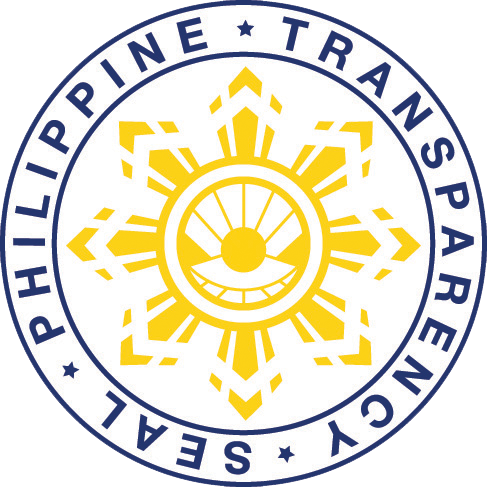Ako po ay lubos na umaasa na ating isasa-puso at panghahawakan ang ating sinumpaang “Pledge of Commitment to the Justice Reform Agenda” na ipinagkatiwala ninyo na aking pamunuan sa hapong ito. Isa pong mahalagang hakbang ang panunumpa at pagkakaisa nating ito tungo sa minimithing pagrereporma ng ating sistemang pangkatarungan.
My friends,
I am honored by your gracious invitation to be part of this First National Criminal Justice Summit, even if my part comes only at the end of your two-day event. I am thinking that perhaps my being a Boy Scout helped qualify me to lead in today’s taking of our Pledge of Commitment.
Levity aside, congratulations are in order to the Justice Sector Coordinating Council, spearheaded by the Department of Justice, the Supreme Court, and the Department of Interior and Local Government, for initiating this first ever National Criminal Justice Summit, which is intended to jump-start the adoption of far-reaching and meaningful reforms in our prevailing justice system. The last two days have been very fruitful in discussing concrete proposals for reforming and modernizing the various components of our justice system.
The organizers have succeeded in projecting a holistic approach to our common quest at improving our people’s access to justice. Of particular note is the monumental task of updating and modernizing our criminal laws to attune them to the changing demands of our developing nation.
The Criminal Code Committee, chaired by Asec. Geronimo Sy of the Department of Justice, has gained impressive ground in the drafting and preparation of an organic, Filipino, and modern criminal code. We fervently hope that the output of this committee will soon enough be deliberated upon in the chambers of our Congress.
Also of great significance are the efforts by the Supreme Court, notably articulated by Justice Roberto Abad, at exploring new rules of procedure that would simplify and speed up proceedings of trial and adjudication so as to make the delivery of justice simple, effective, and inexpensive. This would, indeed, be revolutionary and may well come down as one of the great accomplishments of our Supreme Court.
We all look forward to having the salutary reforms taken up in this summit as forming part of an effective and reinvigorated justice system in the days to come. As a lawyer in government, I take my role as stakeholder in our justice system very seriously. In the agencies that I am tasked to handle, we need the arms of the justice system to go after those who perpetrate fraud against the people, be it in housing projects, in overseas labor recruitment or in human trafficking activities.
This constituency easily consists of the majority of our population, and the efficacy of our laws and our justice system will be tested here, before it is tested anywhere else.
That is why I will yield to no one in making sure that our reforms impact directly on the daily lives of our people.
Where mere lawyers meet, you are guaranteed a lively exchange. Where legal eagles or titans meet, you are assured of something more. This summit has not failed you in that regard; no one will come away from here, disappointed that he or she had to sit through a boring session.
Yesterday’s fireworks made some headlines. But more than anything else, they showed the vigor and strength of the legal profession, and the healthy debate that is going on and must be encouraged between and among the three branches of our government.
The law is not static but dynamic. Not only specific laws are subject to change, but the very concept of law is itself subject to change. This must be debated, and it is best that the debate take place not only within the academe and the legal profession but primarily within government itself.
There are, however, certain self-evident principles. These we must uphold always. This is the only way to preserve truth and freedom. Friedrich A. von Hayek reminds us that “Freedom can be preserved only by following principles and is destroyed by following expediency.”
As early as the third century, the Roman jurist Julius Paulus wrote---and you will perhaps allow me to give it to you in the original Latin: Non ex regula ius sumatur, sed ex iure quod est regula fiat----“What is right is not derived from the rule but the rule arises from our knowledge of what is right.”
Sixteen centuries later, Montesquieu would write not of the law shaping the society, but rather of the society and its culture being shaped by “the spirit of its laws”. Ultimately, though, what concerns us is justice. For as David Hume assures us, “It is possible for men to maintain a small uncultivated society without government, but it is impossible that they maintain a society of any kind without justice.”
Justice is what gives validity to any law. And in any legal system, the dispensing and administration of justice begins with due process. What is due process? Lord Denning defines it for us to mean, “the measures authorized by the law so as to keep the streams of justice pure: to see that trials and inquiries are fairly conducted; that arrests and searches are properly made; that lawful remedies are readily available; and that unnecessary delays are eliminated.”
To keep the streams of justice clear and pure---what a felicitous phrase! than that there cannot be anything of greater consequence, the great jurist continues, quoting Lord Hardwicke (1742).
There is not one stream of justice, Lord Denning points out. There are many streams. But whatever obstructs their courses or muddies the waters of any of those streams, a judge must be free to punish, under the single cognomen ‘contempt of court.’
Through our common effort, I am confident that we shall see the streams of justice in our country made much purer in the days ahead.
Once again, my congratulations and thanks to the organizers and to Hans Seidel Foundation, and good afternoon.


